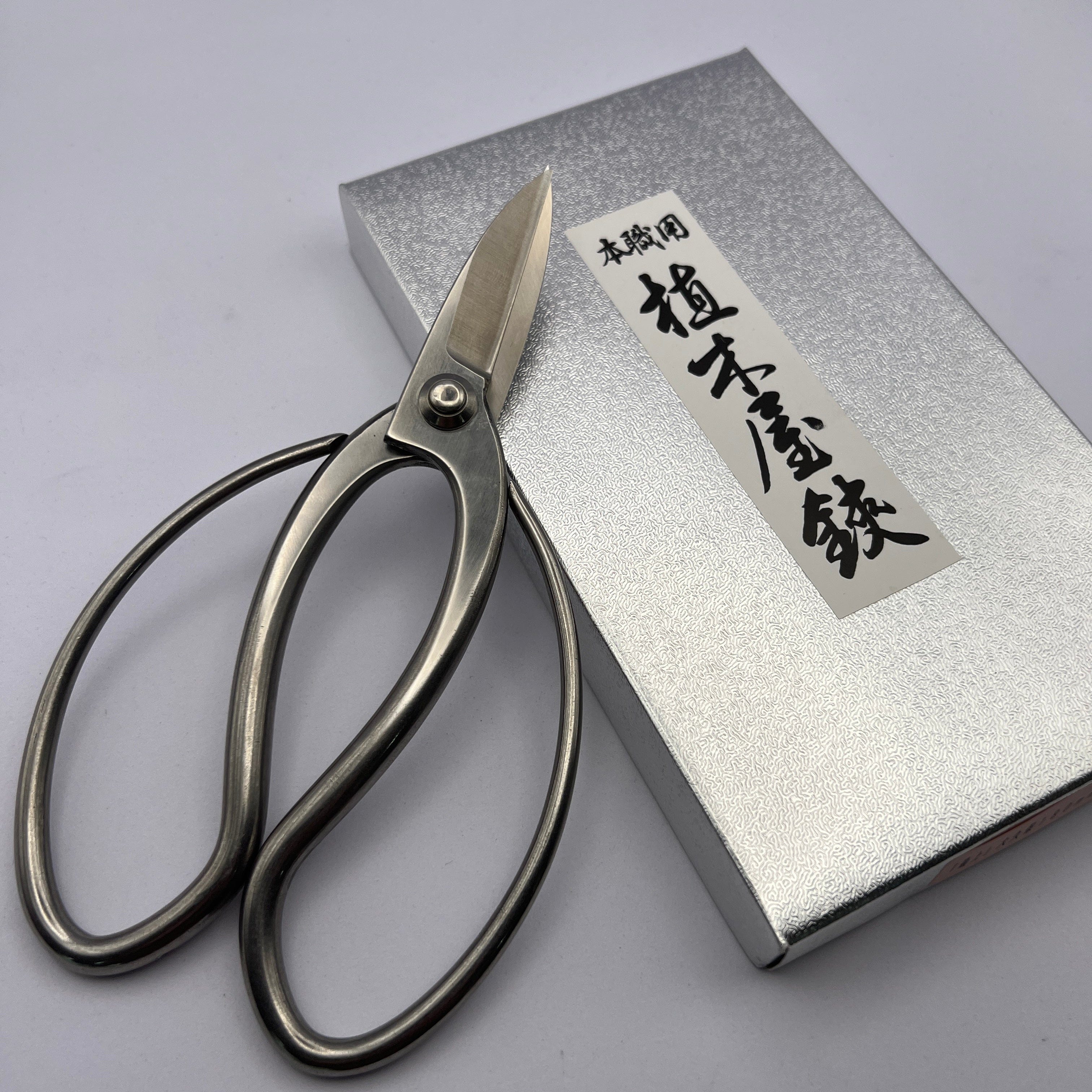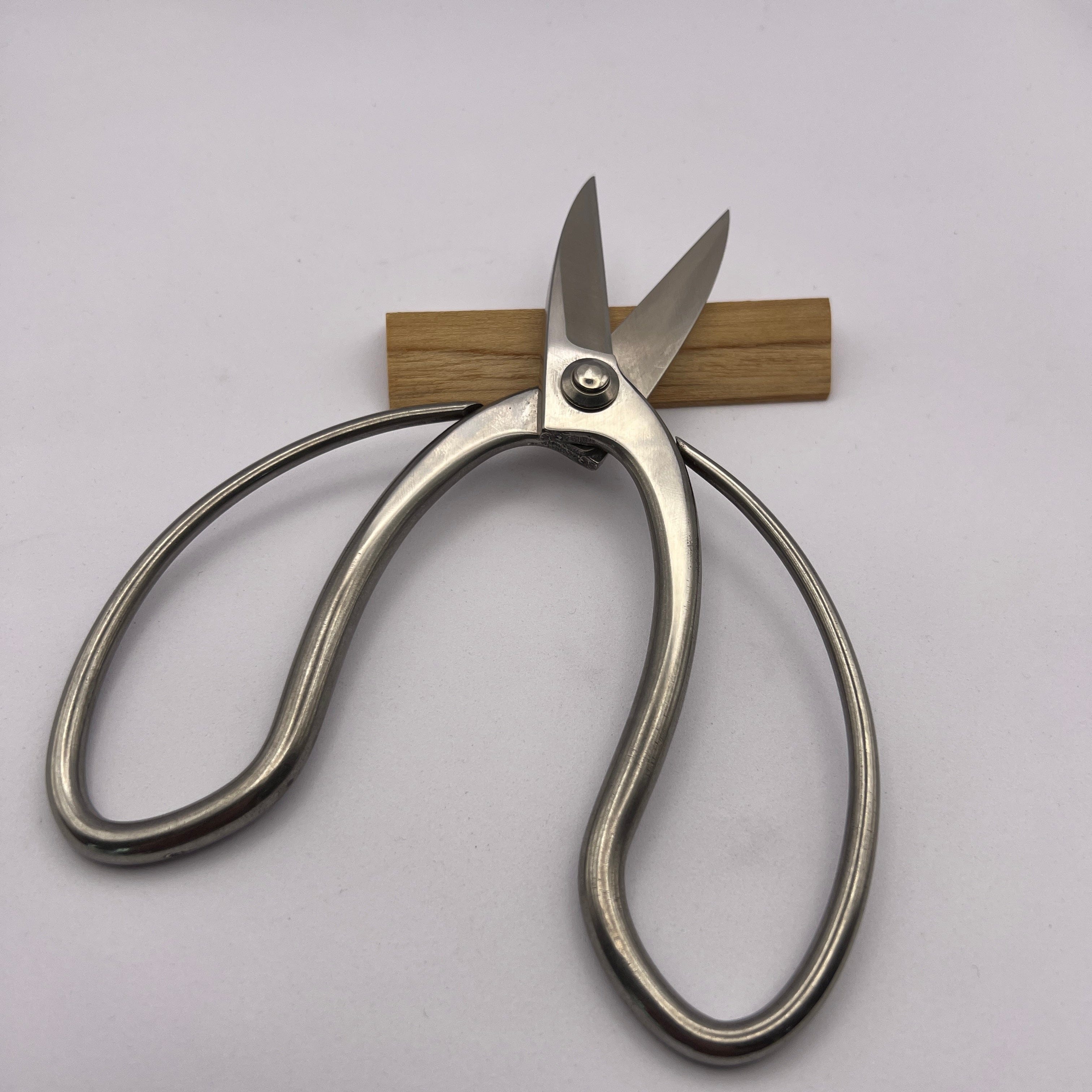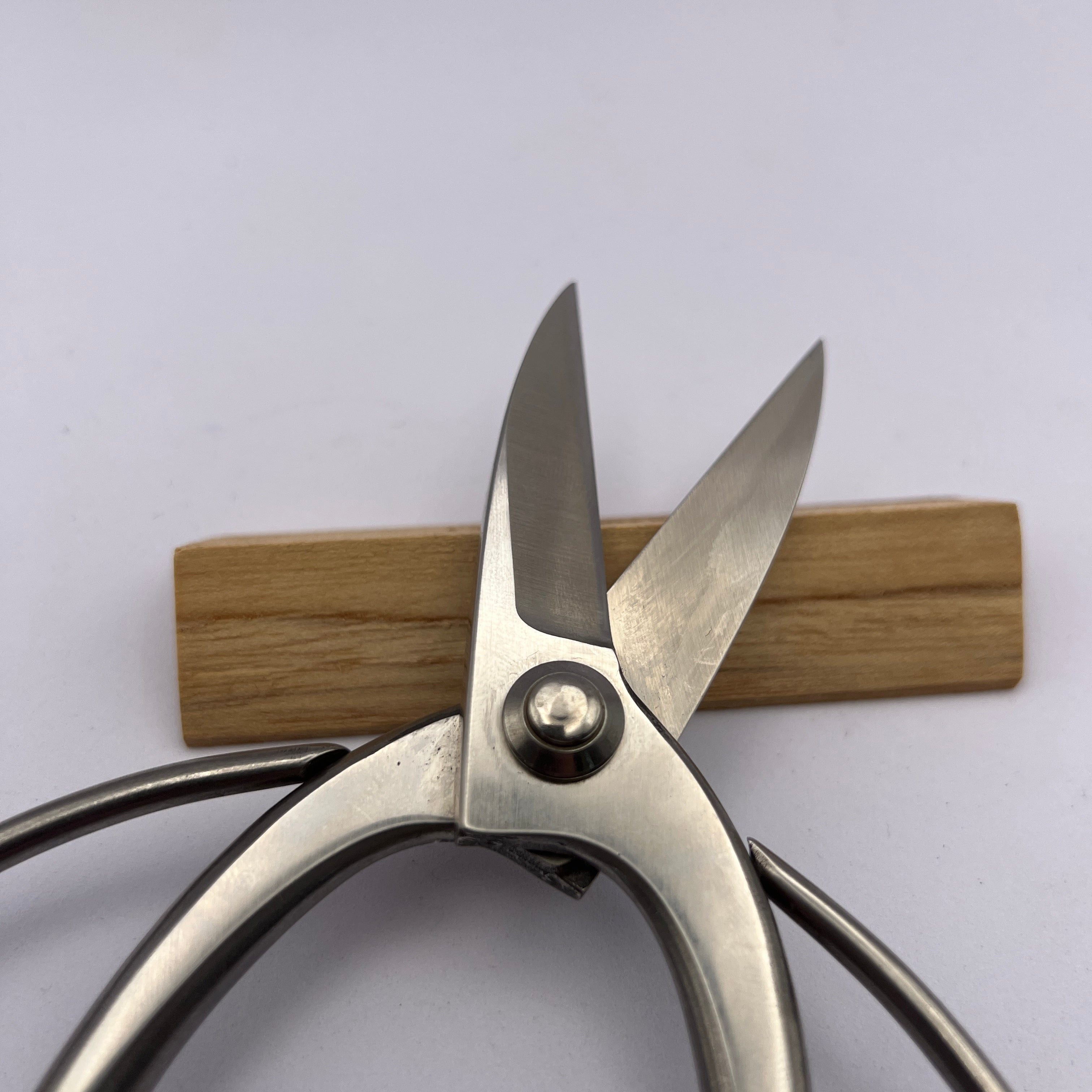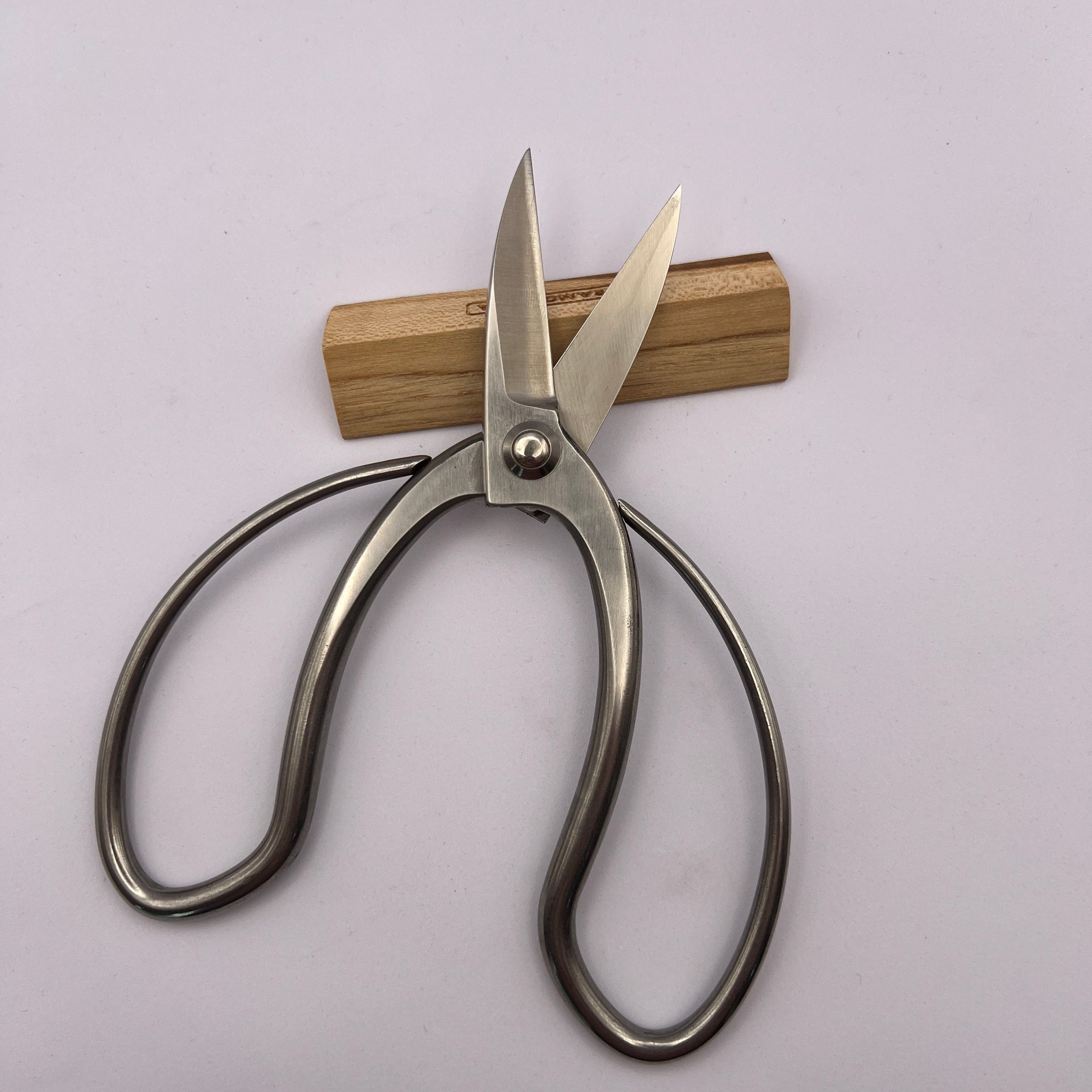



Stainless Steel Bonsai Scissors

Why You'll Love It?
Fast & Secure Delivery from Japan to your Door [Shipping Policy]
No surprise U.S. customs fees. [How we handle U.S. Customs for you]
Shop Safely with Encrypted Checkout and Verified Gateways.
Pairs well with

Stainless Steel Bonsai Scissors
Enduring Precision – Stainless Steel Bonsai Scissors with Effortless Elegance
Designed for those who appreciate precision and lasting performance, these Stainless Steel Bonsai Scissors are handcrafted in Seki—known as Japan’s blade capital. Each pair reflects a masterful blend of heritage and innovation. Their stainless steel construction ensures resistance to rust and corrosion while maintaining sharpness through frequent use, perfect for humid environments.
Clean Cuts for Healthy Growth
Whether you're thinning lush foliage or delicately shaping a bonsai’s silhouette, the ultra-sharp blades cut effortlessly through stems and small branches, measuring 7 inches in length. This promotes healthy healing and improved structure over time—key aspects for bonsai cultivation and precise plant care.
Comfort and Control in Every Movement
The wide-loop handles are designed for comfort and versatility, easily accommodating various hand sizes and grip preferences. Their symmetrical design accommodates both left- and right-handed users, while the satin-finished steel glides smoothly in your hand, blending comfort with sophisticated aesthetics.
A Professional-Grade Tool That Shines
Arriving in a beautifully textured silver box adorned with Japanese calligraphy, these scissors make an exceptional gift for bonsai lovers and floral designers alike. With proper care, including regular cleaning and occasional oiling, their easy-to-maintain material remains bright and sharp, ensuring you'll cherish this investment for years to come.
For those who prune with purpose—these are scissors you’ll grow with, season after season.
Product Information
Care instructions
FAQs
All you need to know about Japanese Knives.
What makes Japanese knives different from Western knives?
Japanese knives typically feature harder steel, thinner and sharper blades, and lighter handles compared to Western knives. These characteristics allow for precision cutting, especially suited for detailed culinary tasks, but require careful maintenance to preserve sharpness and avoid damage.
How should I maintain and sharpen a Japanese knife?
Regularly hand-wash and dry your knife immediately after use to prevent rust and corrosion. Sharpen using a whetstone designed specifically for Japanese knives, maintaining a consistent angle (usually around 15 degrees). Avoid dishwashers and harsh cleaning methods to preserve blade integrity.
Can Japanese knives be used for any type of food preparation?
While versatile, certain Japanese knives are specialized: Gyuto (chef’s knife) handles most ingredients, Santoku excels in chopping vegetables and meats, while Yanagiba is specifically suited for slicing sashimi and seafood. Selecting the right knife enhances performance and preserves blade condition.
Why are Japanese knives often more expensive?
Japanese knives are handcrafted, employing traditional methods and premium high-carbon steel, which contributes to their exceptional sharpness, durability, and aesthetics. This artisanal craftsmanship and the high-quality materials used typically result in higher pricing compared to mass-produced knives.
Are Japanese knives suitable for beginners?
Yes, beginners can effectively use Japanese knives, but it’s essential to start with user-friendly styles like Santoku or Gyuto, known for balanced handling and versatility. Proper care, handling, and regular sharpening practices will ensure a positive experience, even for novices.

